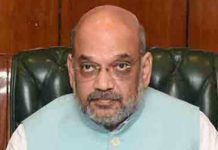
Last week, I mentioned that I Hate Luv Storys was the first film to put me to sleep in the auditorium itself. It is with no little regret that I add Tigmanshu Dhulia’s Bullett Raja to that list. It is an ordeal I am grateful I had a friend accompanying me for; had it not been for his constant complaining about the film, I would have dozed through the entire climax.
The regret is because Dhulia is a director who has made films in the past that can by no means be called soporific — Haasil, Charas, Saheb Biwi Aur Gangster, Paan Singh Tomar. He is one of the few directors you can trust to make the pulp fiction set in heartland India, with the interplay of crime, politics and romance, that is Bullett Raja. His oeuvre and very obvious talents suggest that the film could have, should have, been a mature venture in a genre that has seen some incredibly juvenile treatment, even if those films have made truckloads of money. Bullett Raja, for all its attempts to seem otherwise, looks just as much a cash grab as those films. But it doesn’t commit itself to being a mainstream masala thriller either; what little it gains as a result in terms of depth is far outweighed by what it loses in terms of pure entertainment. The jarring editing, a lot of flab, and some frankly terrible songs don’t help.
It’s tempting to put much of the blame for this on Sonakshi Sinha, who struggles to do anything substantive with her character as female love interest. The whole arc of her being saved by our heroes and deciding to follow them around seems thoroughly unrealistic and unexplained. With a film of this nature, where commercial interests play more of a role than they would in a usual Dhulia film, casting Sinha seems to be one of the compromises made with the formula. (Though Sonakshi fans will probably troop off to watch her in R… Rajkumar next week, hurting this film’s future returns.) But giving her a role that is in no way different from the vanilla damsel-in-distress she usually plays means that the skeleton of the classic revenge tragedy plot becomes all too obvious very early on. If the director isn’t willing to tinker with his protagonist’s closest relationships, you correctly deduce, he isn’t going to tinker with the protagonist himself. And he doesn’t; despite a few cool moments you have to expect from a Dhulia-Saif Ali Khan partnership, Saif’s Raja Misra is every bit the macho hinterland hulk, preferring Bollywood dialogues to normal speech, a pelvic thrust here, a few baddies beaten up there. At no point does he seem to be in danger of doing anything unconventional. Nothing that suggests he is any more than a cardboard hero.
A major reason that the film is so underwhelming is the half-hearted way politics are inserted into the plot. This has historically been Dhulia’s strong suit: while politics are generally tangential to his stories (barring, of course, Saheb Biwi Aur Gangster), his films find a lot to say about the subject. Bullett Raja serves as some sort of primer to UP politics, with much screen time given to how the established powers tackle Raja Misra’s reign of terror, using his power when they can while trying to insulate themselves from his wrath. But the lacklustre writing means that the audience is never invested in what is going on, despite the star-studded support cast of Vipin Sharma, Gulshan Grover, Ravi Kishan, Chunky Pandey and Raj Babbar. Sure, they still get to do more than the usual Bollywood cartoon villains, whose sole purpose seems to be to get the hero as angry at them as possible and then get beaten up, but their machinations only serve to prolong a film that already seems overly long.
With Saheb Biwi Aur Gangster Returns and Bullett Raja, Tigmanshu Dhulia has had a middling, underwhelming 2013. Hopefully, Milan Talkies will reintroduce us to the courageous, insightful director we’ve come to admire.













